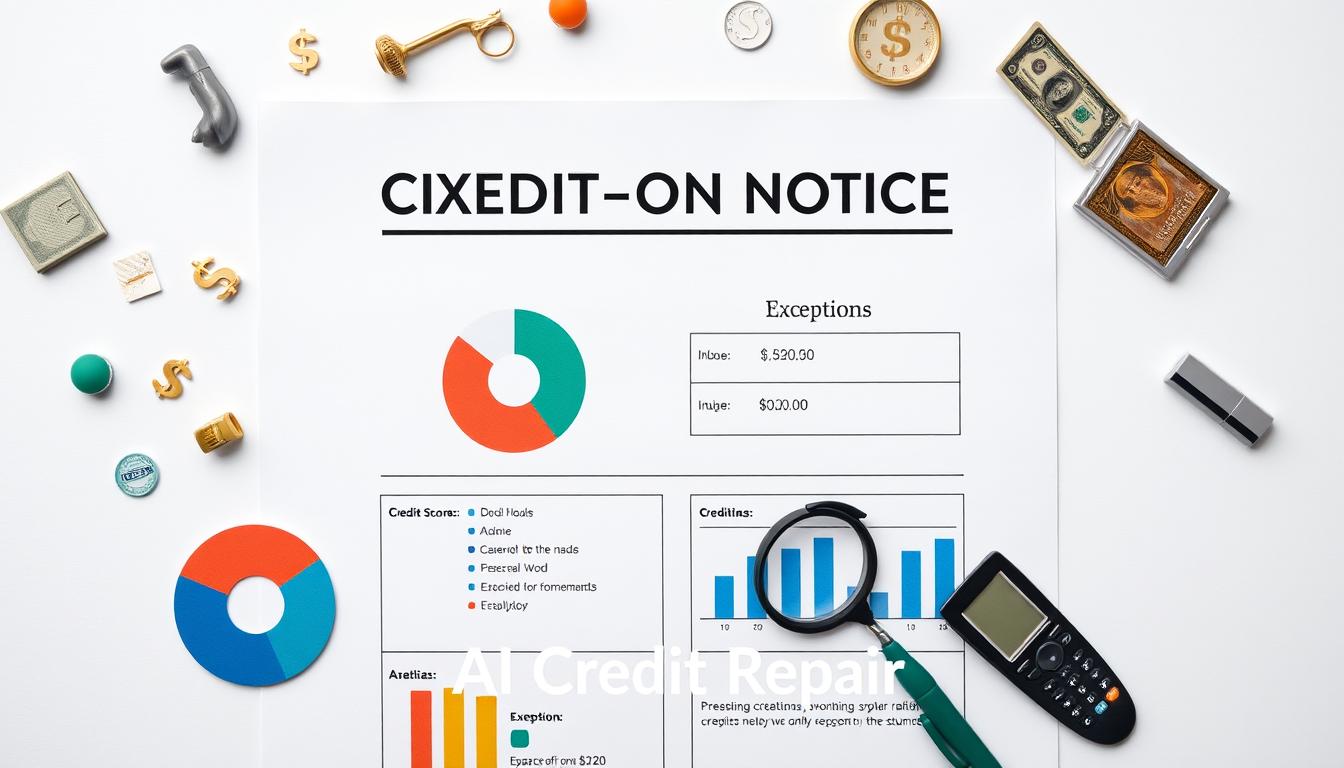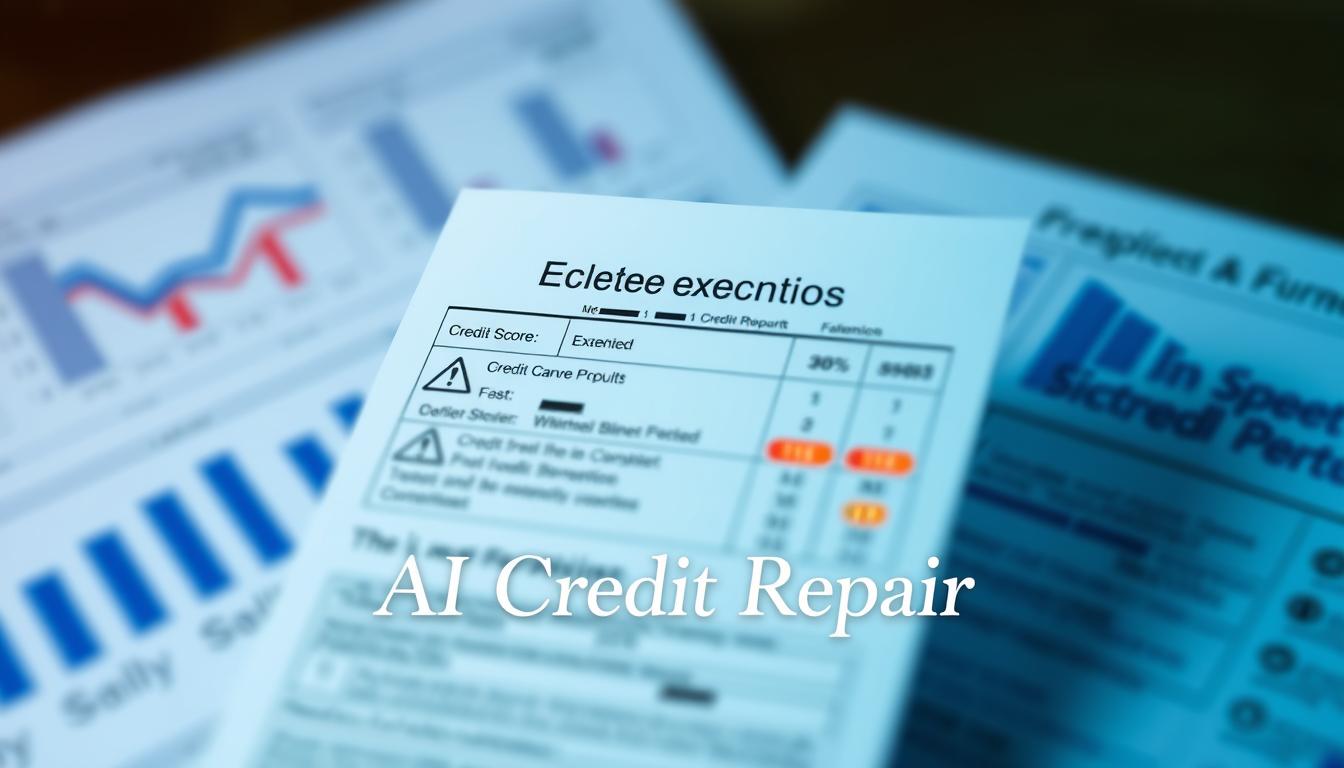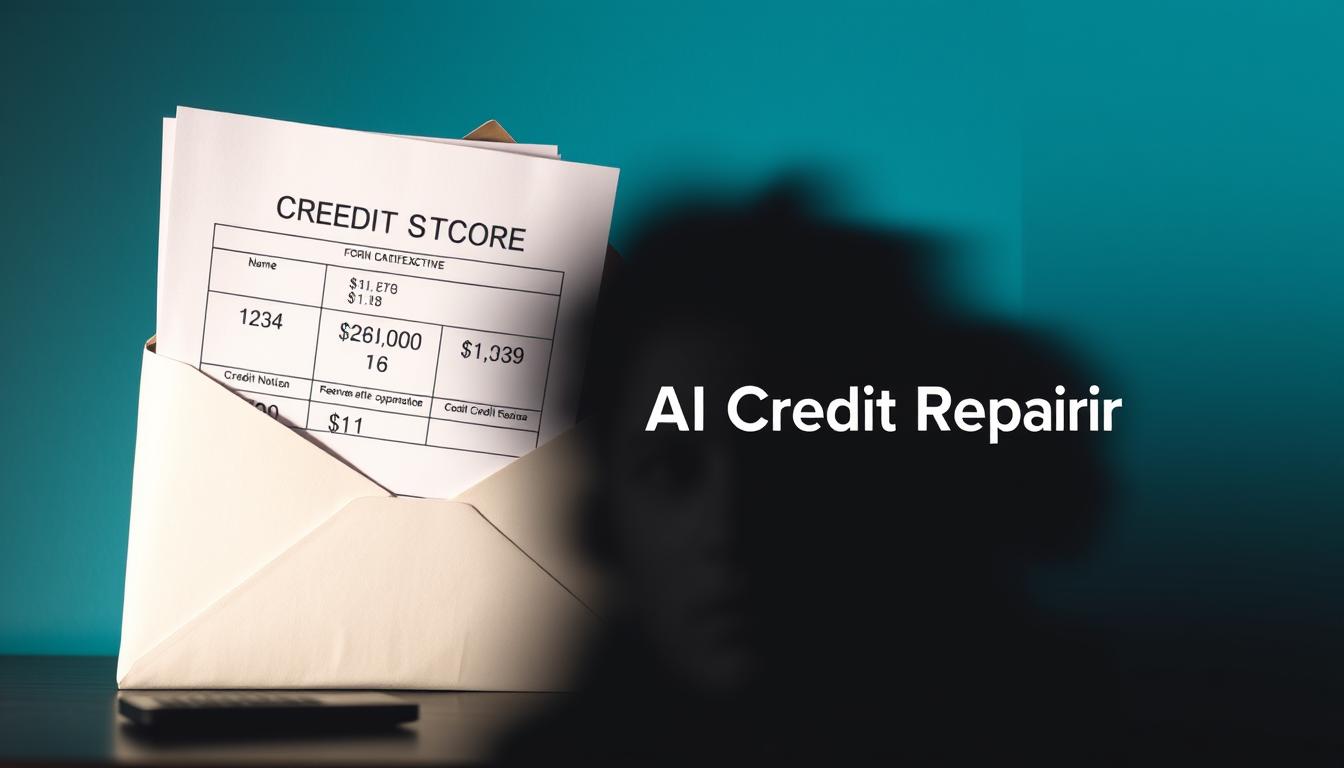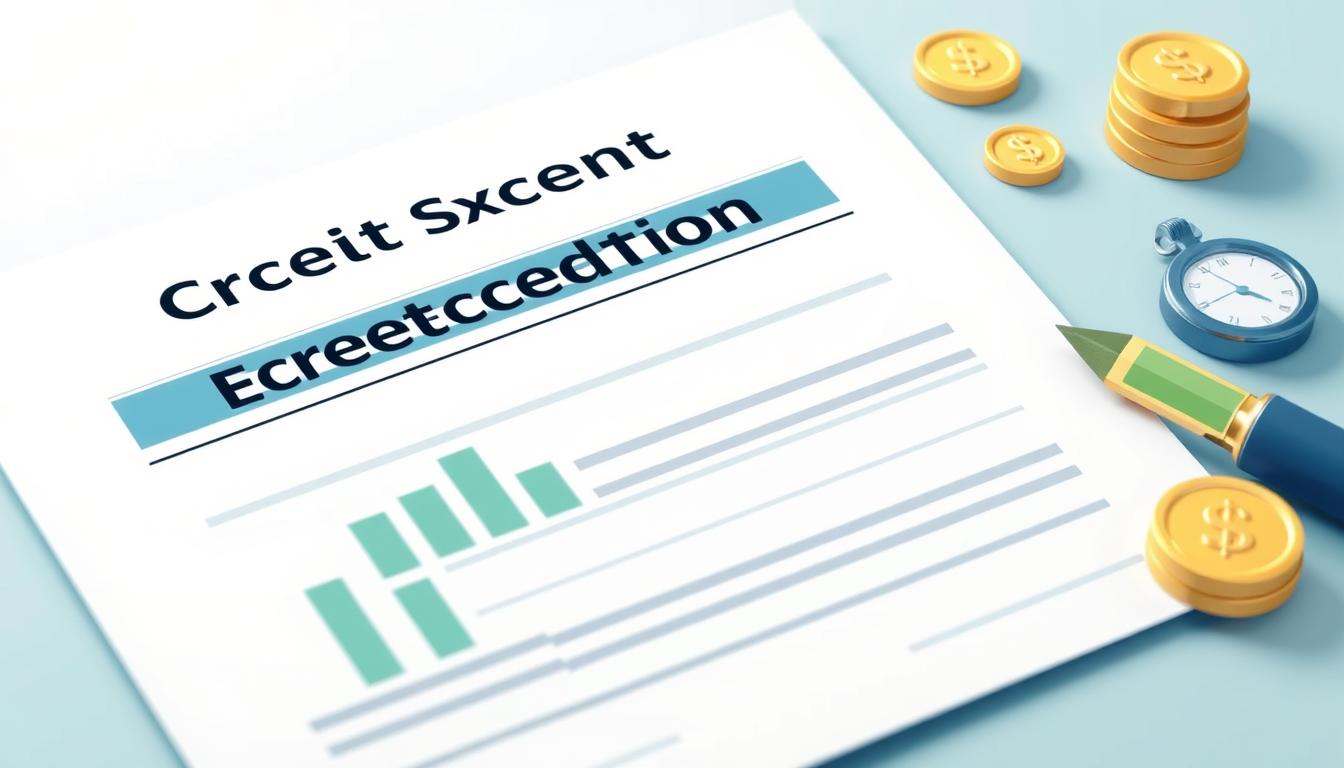Credit score exception notices are important signals in the world of credit scores. They indicate unusual factors affecting your credit profile. These notices help you understand your credit standing better.
Exception notices can reveal discrepancies in your credit report or unusual financial activity. They’re designed to keep you informed about your credit situation. Understanding these notices is key to maintaining a healthy credit profile.
Key Takeaways
- A credit score exception notice is a message from a lender or credit bureau about unusual factors impacting your credit score.
- These notices are meant to provide transparency and help you identify potential issues with your credit report.
- Understanding the reasons behind an exception notice can assist you in maintaining a healthy credit profile.
- Reviewing the notice carefully and addressing any discrepancies is crucial to ensuring the accuracy of your credit information.
- Proactively taking steps to prevent future exception notices can help you better manage your credit in the long run.
Understanding Credit Score Exception Notices
Credit score exception notices offer insights beyond standard credit reports. They highlight factors with unusual impact on your credit score. Understanding these notices is crucial for making informed financial decisions.
These documents provide valuable information for credit applications. They can help you manage your finances more effectively.
What They Are and Why They Matter
A credit score exception notice is a supplementary report. It digs deeper into your credit history details. These notices explain why your credit score may differ from expectations.
They offer a comprehensive view of your financial standing. Understanding an exception notice helps you manage credit better. It can guide you towards achieving your financial goals.
How Exception Notices Differ from Regular Credit Reports
Standard credit reports give a general overview of your history. Credit score exception notices focus on specific factors affecting your score. This detail helps identify areas for improvement or discrepancies.

“Paying attention to the information in a credit score exception notice can give you a clearer picture of your financial situation and help you make more informed decisions.”
Exception notices provide a deeper look at your credit profile. They help you understand your financial standing better. This knowledge allows you to take steps to improve your credit.
Common Reasons for Receiving a Credit Score Exception Notice
Credit score exception notices highlight unusual factors affecting your credit score. These notices point out atypical elements influencing your overall creditworthiness. Let’s explore the frequent causes behind these exceptions.
Recent bankruptcies or foreclosures often trigger these notices. These major financial events can severely impact your credit score. High credit card balances may also lead to exceptions, signaling potential debt issues.
Errors in credit reports are another common cause. Inaccurate information can distort your credit profile, resulting in exception notices. This includes wrongly reported late payments or incorrect accounts.
Unusual credit inquiries might also prompt these notifications. These inquiries could indicate identity theft or suspicious activity on your credit report.
| Reason for Credit Score Exception Notice | Description |
|---|---|
| Recent Bankruptcy or Foreclosure | Major financial events that can severely impact your credit score |
| High Credit Card Balances | Indicates potential debt challenges and can lower your credit score |
| Errors in Credit Report | Inaccurate information, such as late payments or erroneous accounts, can distort your credit profile |
| Unusual Credit Inquiries | May signify identity theft or suspicious activity, triggering an exception notice |
Understanding reasons for credit score exception notices is crucial. Knowing what causes a credit score exception helps address issues. Learning why you received a credit score exception notice aids in maintaining a healthy credit profile.

“Staying informed about the factors that can lead to a credit score exception notice is crucial for managing your financial well-being.”
The Impact of Exception Notices on Your Credit Score
Credit score exception notices can significantly affect your financial standing. They impact your credit score in both short and long terms. Understanding these effects is vital for maintaining good credit health.
Short-Term Effects
Exception notices can make getting new credit or loans harder. Lenders may see you as a higher-risk borrower due to highlighted factors. This can lead to stricter approval criteria or even denials.
It’s crucial to address the issues in the notice quickly. Doing so will help minimize the long-term impact on your credit score.
Long-Term Effects
Addressing problems in the notice can improve your overall credit health. Taking steps to resolve issues shows lenders you’re a responsible borrower. This can help rebuild your creditworthiness over time.
Being proactive is key to handling credit score exception notices. Work with credit counseling services or dispute errors with credit bureaus. These actions can reduce short-term impacts and boost long-term credit improvement.

“Addressing the issues identified in a credit score exception notice is crucial for maintaining a healthy financial standing and ensuring long-term credit score improvement.”
What Is a Credit Score Exception Notice?
A credit score exception notice provides detailed information beyond a standard credit report. It highlights unusual factors impacting an individual’s credit score. This document offers a more comprehensive understanding of one’s financial standing.
A credit bureau or lender issues this report to inform consumers about exceptional circumstances. These events have influenced their credit score in an unusual way. This information helps individuals understand their credit profile better.
This document differs from a regular credit report. It focuses on specific, atypical factors affecting creditworthiness. Understanding these details can help address concerns and improve overall credit standing.
“A credit score exception notice is a valuable tool that helps consumers understand the unique factors shaping their creditworthiness. It is an essential component of the credit reporting process that shouldn’t be overlooked.”

The notice explains potential issues affecting one’s ability to secure credit or loans. It provides insights into financial standing and credit profile. By understanding this notice, consumers can take steps to improve their credit.
Steps to Take After Receiving an Exception Notice
A credit score exception notice signals potential inaccuracies in your credit report. It’s vital to act swiftly to address any issues. Your credit score and financial health may be at risk.
Reviewing the Notice for Accuracy
Start by carefully examining the exception notice for errors. Check the items that triggered the exception against your records. Be thorough, as even small mistakes can cause a credit score exception.
Disputing Errors with Credit Bureaus
If you find inaccuracies, dispute them with the credit bureaus. Submit a formal dispute with supporting documents to Experian, Equifax, and TransUnion. Credit bureaus must investigate and correct your report if needed.
Quick action can help minimize negative impacts on your credit score. It also helps restore your credit report’s accuracy. Being proactive in your response is key to maintaining a healthy credit profile.
“Taking the time to thoroughly review and dispute any errors in a credit score exception notice can go a long way in protecting your credit and financial well-being.”
Preventing Future Credit Score Exception Notices
Good credit habits are key to avoiding future credit score exception notices. By practicing sound financial management, you can keep your credit score stable. This approach helps minimize exceptional factors that may affect your score.
Cultivate Responsible Credit Habits
Building a strong credit profile requires diligence. Here are some of the best ways to avoid credit score exception notices and prevent credit score exceptions:
- Paying all bills on time, every time
- Keeping credit card balances low, ideally below 30% of your credit limit
- Limiting the number of hard inquiries on your credit report
- Monitoring your credit report regularly for any errors or suspicious activity
- Diversifying your credit mix with a healthy blend of credit cards, loans, and other accounts
Developing good credit habits can help you maintain a healthy credit profile. This approach reduces the risk of future credit score exception notices. It also helps keep your credit score exceptional.
| Credit Habit | Impact on Avoiding Exceptions |
|---|---|
| Paying Bills On Time | Keeps payment history positive and avoids late payments that can trigger exceptions |
| Keeping Balances Low | Prevents high credit utilization ratios that may raise red flags and lead to exceptions |
| Limiting Hard Inquiries | Reduces the number of credit checks that can ding your score and increase exception risk |
“Developing and maintaining good credit habits is the best defense against future credit score exception notices.”
Understanding the Credit Reporting Process
Credit score exception notices are crucial to understand. They’re part of the credit reporting process. Knowing how this system works helps interpret these notices better.
Creditors share info about your accounts with three major credit bureaus. These are Experian, Equifax, and TransUnion. They organize this data to create your credit report and credit score.
Your credit score shows how creditworthy you are. It’s based on factors like payment history and credit use. Lenders use this score to decide on loan applications.
- Creditors report information to credit bureaus
- Credit bureaus collect and organize credit data
- Credit scores are calculated based on the credit report
- Lenders use credit scores to evaluate credit applications
Understanding how credit reports work is key. It helps you manage your credit better. You’ll be able to handle any exceptions or issues that come up.
When to Seek Professional Help
Persistent credit score exception issues might require professional help. Credit counseling services can offer expert guidance. They can assist with disputing errors, negotiating with creditors, and creating improvement plans.
Working with Credit Counseling Services
Credit counselors are experts in reviewing reports and identifying exception causes. They can develop tailored strategies to resolve your credit problems. These professionals can also communicate with creditors and credit bureaus on your behalf.
Credit counselors offer advice on building and maintaining good credit habits. This can help prevent future exceptions from occurring. Their insights can empower you to take control of your finances.
For complex credit challenges, a counselor can be especially helpful. They provide personalized roadmaps for improving your credit profile. Their expertise can guide you towards a stronger financial future.

